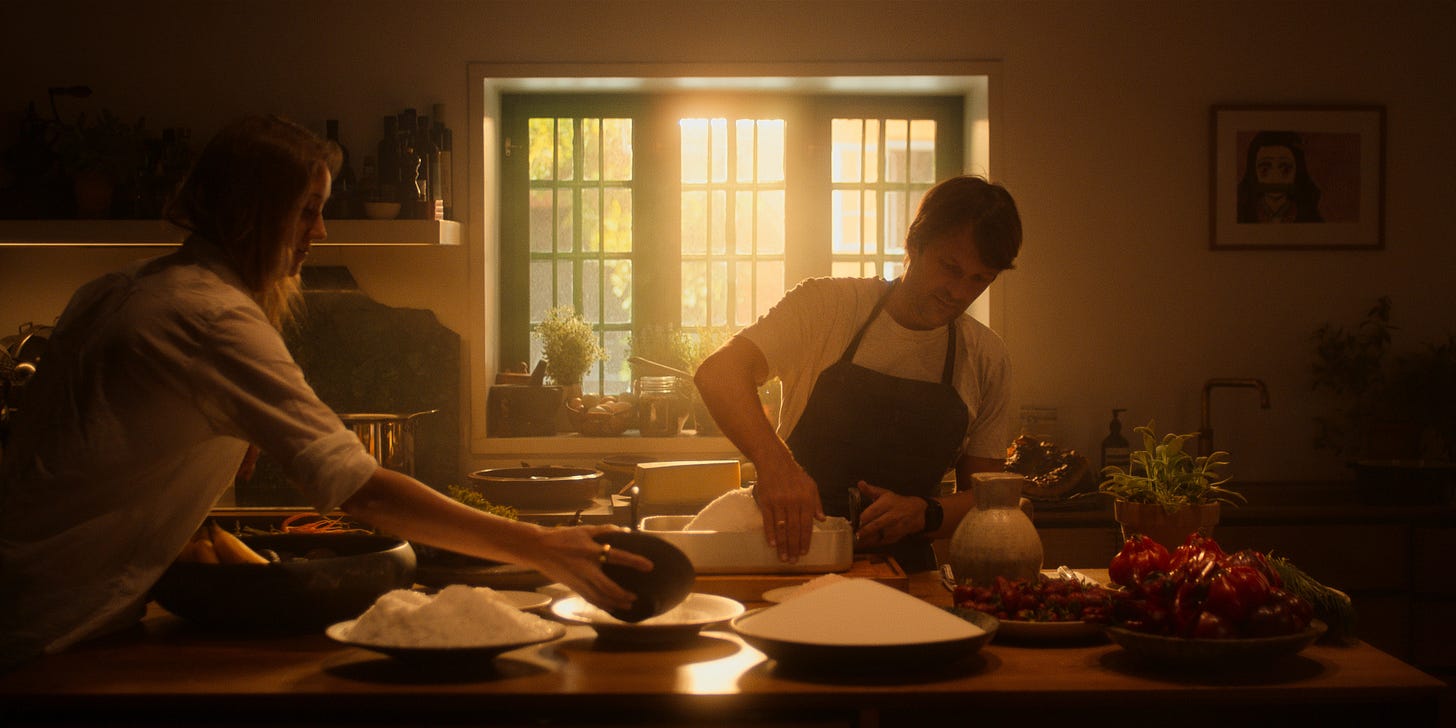Saunier: French Salter; one who extracts salt; salt merchant.
As traditional and nontraditional media companies feel their way through the dark of rapid technological change and the looming specter of AI, tech companies like Amazon and Apple continue pouring money into TV programs and movies with extremely high production quality.
The latest from Apple is an eight episode Planet Earth-meets-Chef’s Table docuseries called Omnivore.
If you’ve finished a season of The Bear or glanced at the 50 Best list within the past decade, you’re probably familiar with Copenhagen’s supposedly-soon-to-close fine dining mecca: Noma.
Noma founder and chef René Redzepi is an executive producer and the narrator of Omnivore.
Each episode focuses on a seemingly humble ingredient and, more interestingly, the people who farm, fish, cultivate, and provide these ingredients to the global culinary supply chain.
The docuseries goes beyond what you’d expect from a cable show with Tim Cook-approved 4k food porn. The storytelling spotlights only the highest quality, the most traditionally farmed, and therefore most expensive versions of the respective ingredients in each part of the series. The history and context told around each ingredient illustrate that they’re documentary-worthy and sought after enough to make their way to the kitchens of rockstar chefs like Redzepi.
If you have access to an Apple TV+ subscription, you’ll likely jump to whichever ingredient title catches your eye first. Coffee on a Sunday morning. Or maybe Tuna on a school night.
If there’s one to watch, the third episode – Salt – is the one.
Chef René kicks things off in the Dune-like desert of Djibouti, telling us that “life as we know it begins with salt,” before jumping continents for a quick detour through his kitchen and on to France about six minutes in.

It’s here that we meet French artisans Elisabeth (described onscreen as a “saunière”) and Fabian (described onscreen as a “saunier,” pronounced “sawn-ye” with your best attempt at a French accent) working with Zen garden patience and focus to harvest fleur de sel by hand from their salt marshes — all that remains of ancient, dried-up seas.
Like many of the other highly skilled craftspeople highlighted in the series, there’s a familial element. Fabian introduces us to his enthusiastic spectacled son, Gustave.
Fabian and Elisabeth are delightfully French, comparing fleur de sel to the flavors found in glasses of Beaujolais and beautifully romanticizing their work. When it’s time for Fabian to pack up his bounty, he uses one of the most French cars ever – a Citroën Méhar – that’s painted as pristinely white as his harvest.
Redzepi takes over narration from Elisabeth and Fabian, explaining how salt is the root for English words like “sausage” and “salad” as our French salt harvester friends drive to market with smiles on their faces. Their hard work, passion and care pays off, as we learn their fleur de sel sells for 50x the global average of lesser (aka mid) salt.
Throughout the second half of the episode, Redzepi checks off two more continents, taking us to the stunning slopes of Peru, classrooms of Korea and back to his ethereal kitchen where he’s preparing a salt-centric fish dish with care. The episode ties each region - and the people we meet - together at the end with clips of our salt harvester heroes seasoning their meals with the sacred staple they proudly use and produce.
Like most entertainment, Omnivore is aspirational. It’s highly unlikely that I’ll ever be lucky enough to eat sushi prepared by Takashi Saito or become the caretaker of a prized Spanish pig (both equally aspirational in my eyes).
Out of the entire very easy to watch series, I can’t shake questions raised by the passion and philosophy of the salt harvesters and how aspirational they are.
Am I putting as much care, patience and appreciation into my own work as they do? My workouts? My relationships? Is how I fill my time worthy of sharing with future generations? Is what I create 50x more valuable than average? How do they make manual labor – in some cases conducted barefoot and outdoors – look relaxing? Will I ever drive a car as cool as a Citroën Méhar?
I don’t have all the answers, but the next time I hear someone bemoan heading to work as “another day in the salt mine,” I’ll think of the sauniers and, to use another cliched phrase — I’ll do as they do.





